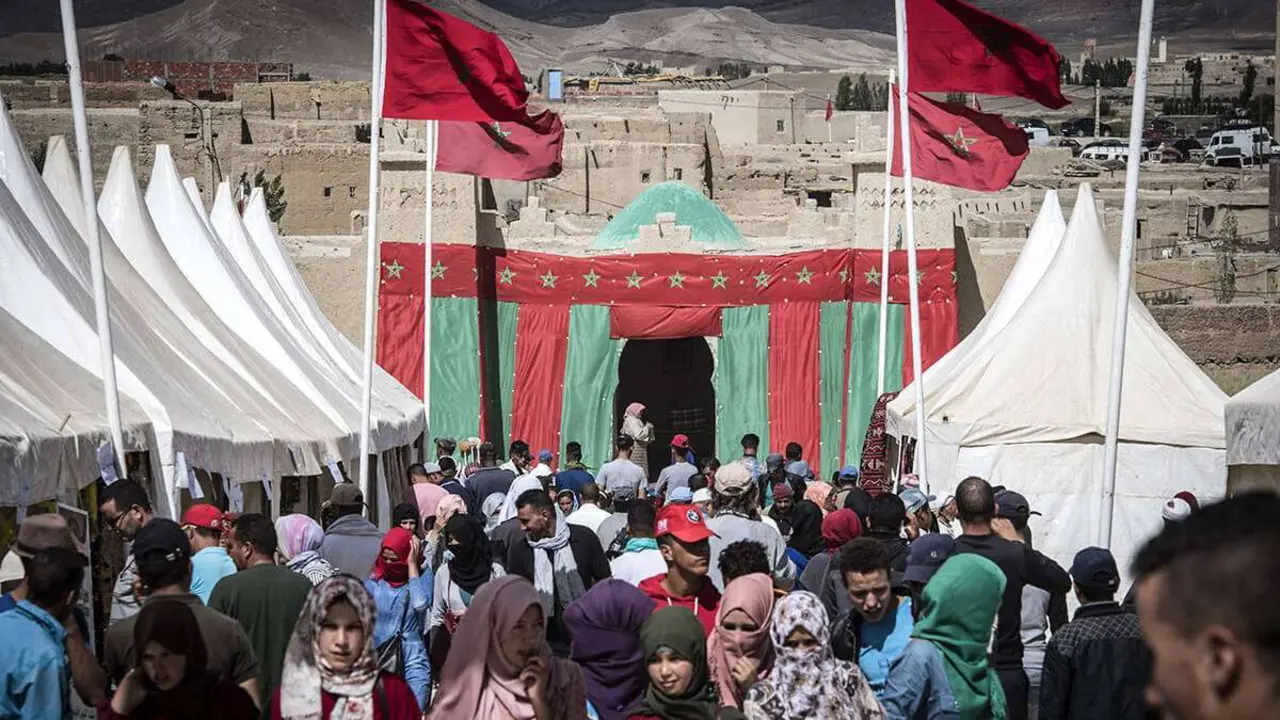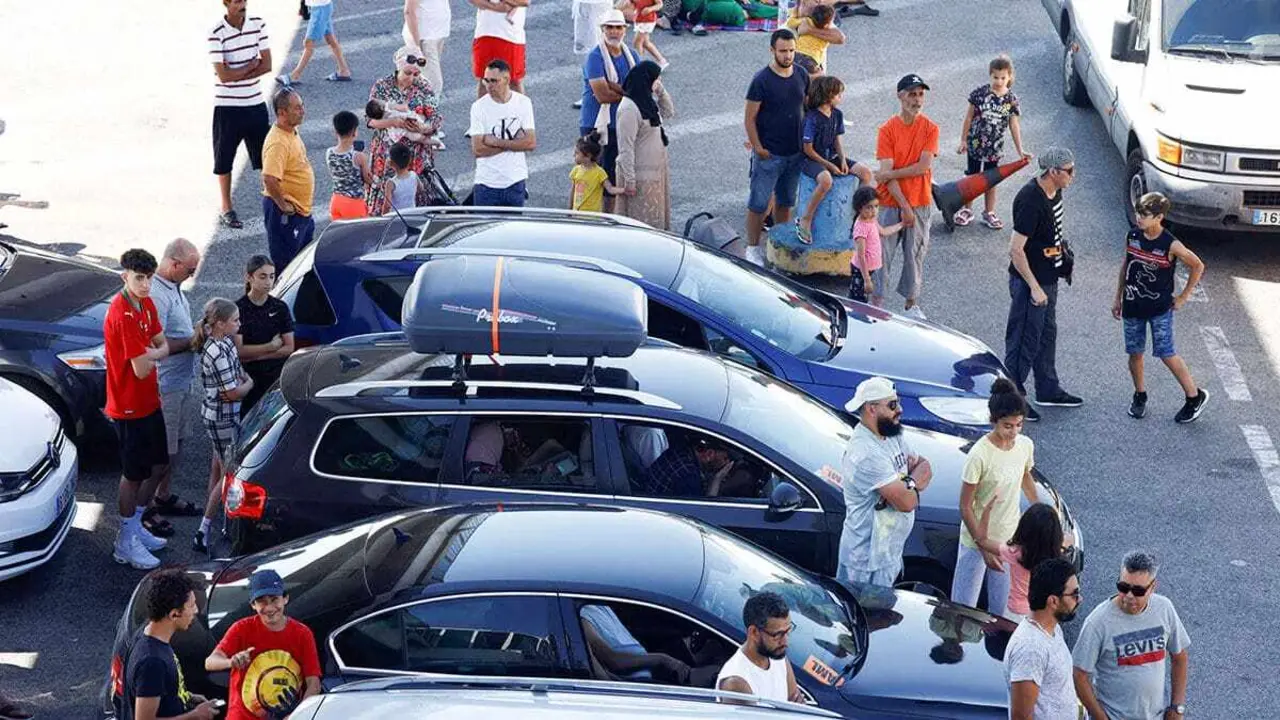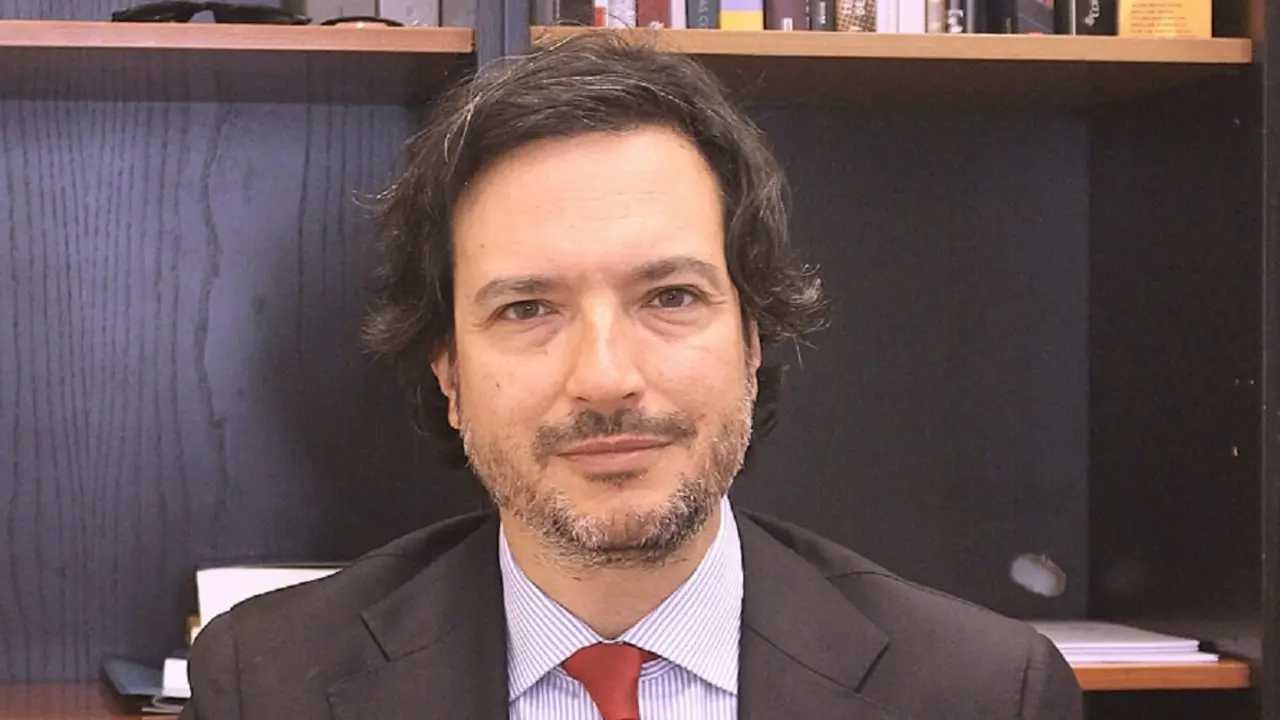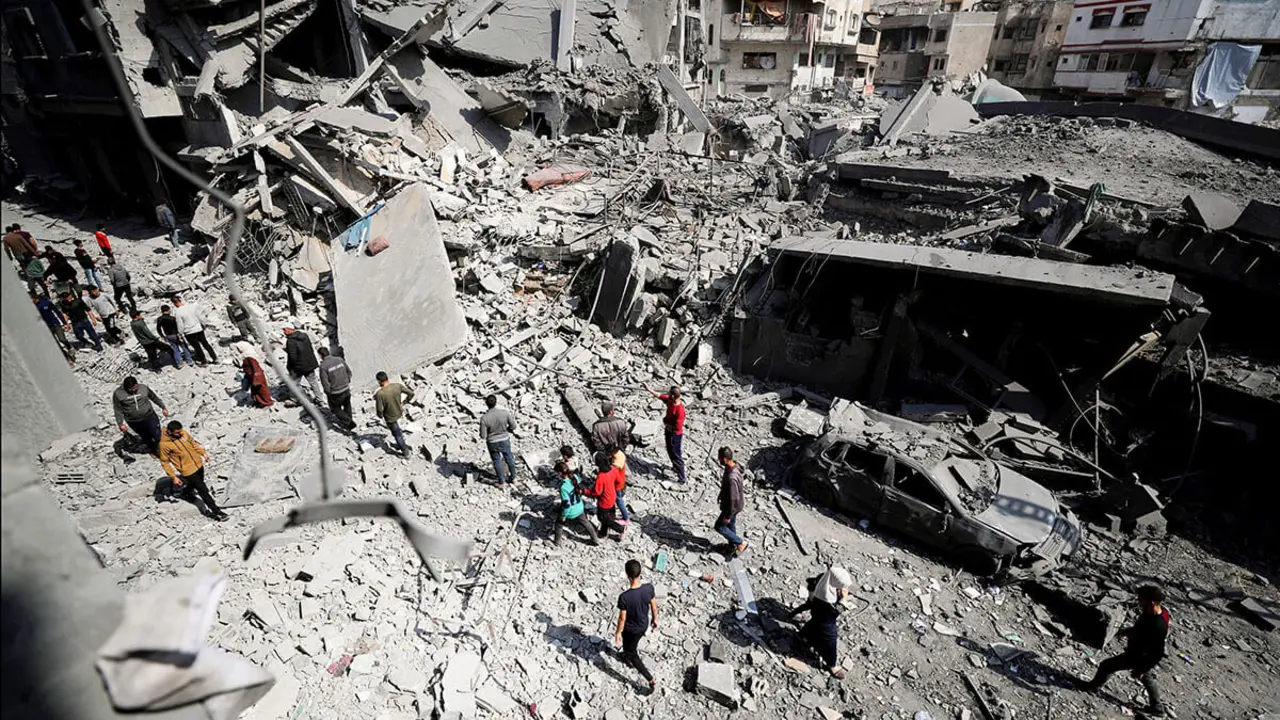First-hand: The level of human suffering in Ukraine is unimaginable

"There has just been an attack in Kherson, a Red Cross paramedic has been killed. Excuse me, I'm writing a statement at the moment". Saviano Abreu, spokesperson for the UN Office for the Coordination of Humanitarian Affairs (OCHA), picks up the phone from Ukraine. The interview has to be postponed.
It's been a week since he spoke to us from a bomb shelter. Power cuts and Russian attacks on energy infrastructures are increasingly complicating communications, while the humanitarian situation is also worsening.
Saviano has been in Ukraine since March and was also part of one of the three teams that entered Mariupol to evacuate civilians from the Azovstal steel plant. He still has the image of a couple in their 80s clinging tightly to his arm.
"I got off the bus with them to help them into the Ukrainian vehicles. They were walking with difficulty with two little plastic bags, that was all they had," explains to UN News this expert in communication and humanitarian response with experience in Somalia, Ethiopia, the Tigray conflict and Madagascar.

UN News: What is the current humanitarian situation in Ukraine?
Saviano Abreu: The situation in Ukraine keeps getting worse. We have been at war for almost 10 months now, in all this time Ukrainians have seen their homes bombed, their families have had to flee or have relatives killed by the attacks. Hospitals have been hit, schools have been hit... The level of human suffering is unimaginable. And with the onset of winter, the situation is even worse. Temperatures can drop to below 20 or 30 degrees below zero.
UN News: How does the energy crisis caused by Russian attacks affect strategic infrastructures?
Abreu: We don't seem to be aware of how necessary energy is, but when we lack it we understand what it is. Especially in a country with such low temperatures. Without electricity, the water system in houses is affected, the pumps that transport water stop working and heating is affected. One thing leads to another.
For hospitals, for example, not having electricity or having power cuts affects their capacity. This is proving to be a big problem for the population. The Ukrainian government speaks of some 12 million people in a humanitarian emergency because of the electricity supply. This situation is changing every day. The reality is that millions of people right now do not have the capacity to have electricity, water or heating in their homes.
UN News: How has the UN reacted to this humanitarian situation?
Abreu: We are in direct coordination with local governments and the national government to see how we can improve aid. In June we started to buy and bring into the country generators, which are essential right now, and other materials to repair houses, as well as thermal blankets and clothes.
We have been able to bring in about 700 generators of different capacities for hospitals and for centres where IDPs are living. Most of them are schools, former sanatoriums or gymnasiums.
We also supplied generators for the resilience centres. These places are spaces with water, food and heating for people who cannot stay in their homes because of the lack of energy.
UN News: You were in Kherson a few days ago, what challenges does the humanitarian response in Ukraine present, does it affect the region differently?
Abreu: Yes, and that puts us humanitarians in front of bigger challenges. This is not a standard humanitarian response.
In other countries, with more or less need for humanitarian aid, the type of assistance is standard and more homogenous. Here in Ukraine it changes every day and depends very much on the region. If you are close to the front line, the needs are basic like having water or food to survive.
There are people, older people, who couldn't or didn't want to leave their homes, those people need the basics. Then in the capital, the needs are different, for example, bunkers.
For many months, in Kyiv, the situation was normalised, people could and can go to work even if we spend hours in the shelters. But in the last month that normality has changed, there are many people who spend days and weeks without access to water and they are going to need the help of international organisations or the government, just like in more affected areas.
If we talk about areas that were under the control of the Russian Federation, the situation is even more alarming because they have lived through months of war without access to basic human supplies.
And often, during the withdrawal of Russian troops, the situation is even worse because when they leave, they bomb the little civilian infrastructure that remains, leaving them in a situation of greater vulnerability. This is what happened in Kherson.

UN News: Are more people displaced by attacks on energy infrastructure?
Abreu: It was something we had expected, but the latest studies we have done show the opposite.
Studies by the International Organisation for Migration (IOM) have shown us that people are staying and trying to cope as best they can. We are not seeing a massive movement as we saw in the first months in February, March or April. We don't think it will happen again but the dynamics change.
Abreu: No, in fact, one of the problems we have in Ukraine is to be able to reach all the people who need it, including the areas under the control of the Russian Federation.
Before 24 February there was already a humanitarian emergency, we were present in Donetsk and Lugansk in the two regions affected by the war here in Ukraine for eight years. We had access to both sides, but since 24 February everything has changed, we can no longer send supplies to the other side, we have not been able to get a single truck through.
And this is what we have been trying to do for many months. We send notifications to the humanitarian system agreed by both sides of the conflict to report our movements, it's a way to guarantee our security, because the parties have an obligation to facilitate humanitarian access and to make it safe.
None of the notifications sent have received a response so that we can cross with guarantees. The only exception is when we went to Mariupol for the evacuation of civilians from Azovstal, the steel plant.
That does not mean that we are not working in those areas, we are, because we were there before and because there are NGOs and volunteers who continue, but our work is very limited. We were only able to reach one million people in eastern Ukraine compared to 14 million in the rest of the country. The work there is very limited.
Azovstal evacuation
UN News: You were involved in the evacuation of civilians from Azovstal, what happened in that sensitive UN role as facilitator of the agreement?
Abreu: It was a tough, difficult experience. We spent several days in the Zaporiyia region, it was a safe passage operation with a ceasefire so we could do it, we had been negotiating for months. In fact, the civilians had been in a bunker for two months without being able to see the sunlight.
We only got access when the Secretary-General, Antonio Guterres, travelled to Moscow and Kyiv, shortly after that we had that moment when the parties reached an agreement.
From then on, the United Nations and the Red Cross acted as facilitators. There were three rounds of evacuations, one part of the team was in Zaporiyia and another went into the area, I was in the second round.
The first team left on a Thursday morning and arrived in Azovstal on Saturday morning, two days for barely 200 km. To give you an idea of how hard it was, at each military checkpoint we could spend hours waiting. Negotiations were going on every minute. On top of that, we were bombed the first day and the access to the plant was mined, nobody had warned us, so we went back until the mines were cleared.
The hardest thing was that the people inside the steel plant trusted us and the process. Imagine being in that situation, locked up for months and bombed, many didn't trust us.
The people trapped in the Mariupol steel plant did not know if it was a safe process and if it was really controlled by the UN and Red Cross. They were also afraid that they would be forced to go, mostly to Russia.
On the first day very few people left, so the team decided to stay. When those who had been evacuated communicated with the rest, those who were still in Azovstal saw that it was safe, then more people started to leave.
We went back for a second round because on the way, through the city and other villages going from Mariupol to Zaporiyia, we saw people, groups that were on the roads and in the port trying to join the convoy. Those people knew that we were there, people had been informed by social networks. But at that time there was no agreement and we couldn't get them out. It was heartbreaking. To go back without helping those people was hard.
However, we kept trying, we got agreements and we went back for them, it is true that we think there were more people when we first saw them, but we managed to bring back to Zaporiyia about 600 people who were facing hell in Mariupol and the surrounding areas.
UN News: How did you experience that moment?
You live through it all with a lot of pain from seeing so much suffering. I have an image of a couple in their 80s coming out of the Azovstal plant. I got off the bus with them to change to Ukrainian buses. They were walking with difficulty with two little plastic bags, that was all they had. The man was talking to me all the time. I felt that need I had to be accompanied. It was hard but also gratifying to know that we were able to do something to alleviate their suffering.
Sabiano Abreu says goodbye on the phone from the UN office in Ukraine. Like him, there are 1,400 UN workers in the country's 24 oblasts or regions. Their mission, among many others, is to deliver supplies, food, shelter, blankets, medicine and water to those most in need: women, children, the elderly and the disabled.

- Nearly 18 million people, 40% of the population, are in need of humanitarian assistance.
- More than 7.8 million people are now refugees, and 6.5 million are internally displaced.
-There have been more than 715 verified attacks on health care. These attacks constitute a violation of international humanitarian law.
-One third of the population is estimated to be food insecure, rising to one in two households in some areas in the east and south.
-There are 17,000 civilian casualties, including more than 6,500 dead, more than 410 of whom are children, according to the Office of the UN High Commissioner for Human Rights. The real figure is likely to be considerably higher.
- The Black Sea Grains Initiative, central to combating global food insecurity, has exported more than 12.2 million metric tons of grains and foodstuffs through the agreement as of 29 November. Nearly 23% has gone to low- and low-income countries, including 47% of wheat exports. The food price index has declined by almost 15% since its peak in March 2022.
Interview by Letizia Alvarez, Communications Officer at the United Nations Information Centre in Brussels








